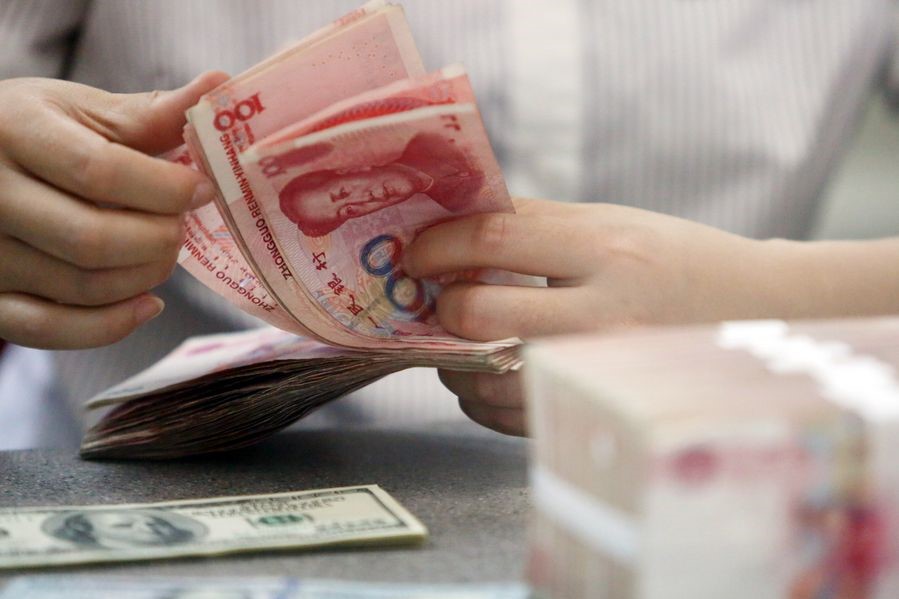State fund's move buoys investors' confidence


Capital: Positive responses seen in A-share market
Central Huijin Investment, an arm of China's sovereign wealth fund, has increased its stake in the country's four biggest commercial banks amid strengthening signs of economic recovery, which analysts said will help further boost investors' confidence and drive up stock market performance.
Central Huijin increased its stake by 0.01 percentage point in each of the "Big Four" lenders — Bank of China, Agricultural Bank of China, China Construction Bank and Industrial and Commercial Bank of China — and plans to further boost holdings in the banks in the coming six months, according to the banks' announcements on Wednesday night.
The capital injection into major lenders came as China is scheduled to release its third-quarter GDP data next week, and experts expressed their optimism over the move.
Stakes totaling about 477 million yuan ($66 million) were bought by Central Huijin, sending a positive signal that will strengthen investor sentiment, Hong Hao, chief economist at GROW Investment Group, said in a research note.
The A-share market responded positively on Thursday. The benchmark Shanghai Composite Index gained 0.94 percent, while the Shenzhen Component Index closed 0.83 percent higher.
The A-share banking sector rose 1.38 percent on Thursday, led by Bank of China's price surge of 3.18 percent and China Construction Bank's increase of 2.68 percent.
Northbound capital — the amount that overseas investors buy into the A-share market — reported a net capital inflow of nearly 7 billion yuan, ending the outflow trend since late September.
According to Cao Liulong, chief strategist at Founder Securities, the A-share market usually rebounds within one month on average after a Central Huijin move. A-share listed banks, beauty care service providers and communications companies generally show the biggest rally within five to 30 days after a sovereign wealth fund announcement.
Analysts said that China is at a crucial juncture of economic recovery and it is of great importance to further strengthen ties between the stock market and the real economy. Central Huijin's capital injection can play a very effective role in elevating market confidence and better serving economic growth, they added.
Analysts from Soochow Securities explained in a Thursday research note that the injected capital from Central Huijin is similar to market stabilization funds in developed economies such as Japan and the United States. The MSFs have been set up to alleviate market volatility by purchasing exchange-traded funds or individual stocks.
Justin Yifu Lin, dean of the Institute of New Structural Economics at Peking University, estimated that China will register GDP growth of 5.5 to 6 percent this year, remaining the "fastest-growing" economy.
To better achieve that goal, the government should adopt certain countercyclical measures such as more active fiscal stimulus and expansionary monetary policy, he suggested.
JPMorgan's chief China economist Zhu Haibin estimated that China's growth may reach 5 percent this year, higher than a previous forecast of 4.8 percent.
"The impact of incremental policy easing actions announced since mid-August, including demand-side easing measures in the housing market and cuts in interest rates and the reserve requirement ratio, has not fully reflected in the August data, which will likely feed through the real economy in the coming months. In response to that, we have revised up growth forecasts for the third quarter, the fourth quarter and the full year," Zhu said.
Lin Yingqi, an analyst at China International Capital Corp, said that over the past few months, China's major economic indicators, including the purchasing managers index, profitability of industrial companies and inflation, have all shown signs of marginal recovery concerning the nation's endogenous growth momentum.
Combined with Central Huijin's latest move, the market confidence will be buoyed and more capital flow will likely be introduced, further elevating the A-share market's resilience, Lin said.




































